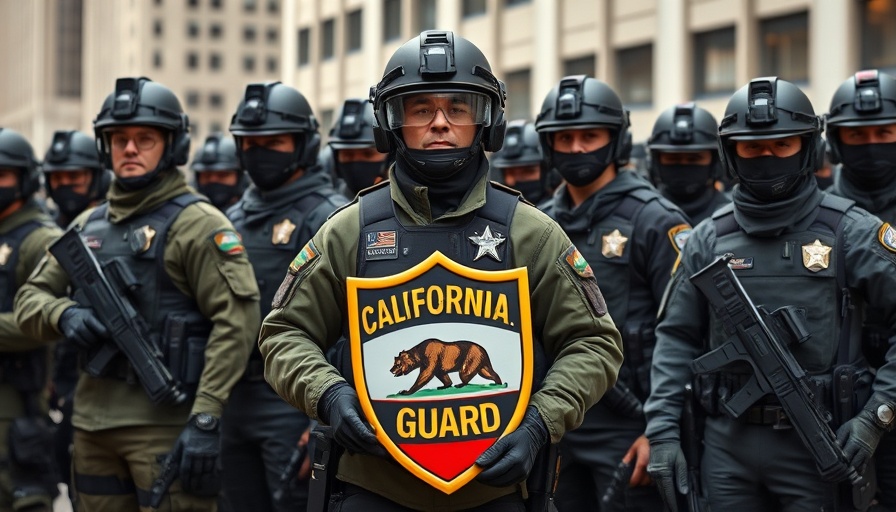
Understanding the Ruling: What It Means for California
A federal judge recently ruled that President Donald Trump unlawfully deployed the National Guard to Los Angeles during protests, asserting that this move violated the Tenth Amendment of the Constitution. U.S. District Judge Charles Breyer's decision has broad implications for state rights and governance. The ruling mandates that oversight of the California National Guard must be returned to the state, effectively limiting federal control during civil unrest.
The First Amendment and Protest Rights
Judge Breyer's order does not just revolve around the legality of military deployment but also highlights the potential infringement on First Amendment rights. The judge argued that the militarization of cities creates a hostile environment that could escalate tensions between law enforcement and citizens exercising their right to protest. The ruling emphasizes that the rights to peaceful assembly and expression should not be suppressed, as they are critical components of a democratic society.
California's Response: Defending State Sovereignty
In response to Trump's actions, California Governor Gavin Newsom quickly moved to file a lawsuit, calling the federalization of the National Guard a "serious breach of state sovereignty." In his statements, Newsom pointed out that this initiative could serve as a precedent for similar actions in other states, suggesting that the implications stretch beyond California’s borders. He fears that if unchecked, federal overreach could undermine democracy at a national level, raising alarms for other governors who face similar situations.
The Bigger Picture: National Security vs. Civil Liberties
This ruling opens the door to vital discussions about the boundaries of military involvement in civil matters. As communities grapple with the intersection of national security and civil liberties, this case underscores the delicate balance that must be maintained. The growing militarization of law enforcement has drawn criticism from various quarters, including civil rights advocates, who argue that the presence of the National Guard can result in an increased risk of violence and a deterioration of community relations.
Future Implications: A Legal Precedent
The ruling sets a significant legal precedent that could challenge future federal actions and the use of National Guard units across the United States. With the Trump administration’s immediate appeal to the Ninth Circuit Court, the ongoing legal battle could redefine the scope of military action in domestic scenarios. Observers note that the outcome may influence how states respond to federal mandates in the future, potentially fostering a more significant pushback against perceived overreach.
A Call for Civic Engagement
As these legal battles unfold, citizens must stay informed and engaged in the dialogue surrounding their rights. Understanding the implications of cases like this is crucial, especially as they can shape governance and civic freedoms moving forward. The decision is a wake-up call for individuals to recognize how local and national issues intersect, as well as the power they hold through advocacy and participation.
Conclusion: Why This Ruling Matters
Judge Breyer’s ruling against the Trump administration's use of the National Guard reflects an essential victory for state sovereignty and civil liberties. While the administration has launched an appeal, the current situation offers a unique opportunity for citizens to reflect on the balance of power within their government. To truly defend democracy and ensure that civil rights are respected, public awareness and civic involvement remain paramount.
 Add Row
Add Row  Add
Add 




Write A Comment